Apple Music's ten years, billions of dollars in fines, and one failure
On June 30, 2015, Apple launched Apple Music, the service that has brought music pleasure to millions -- and cost Apple billions in fines -- plus it included a social media feature no one wanted.
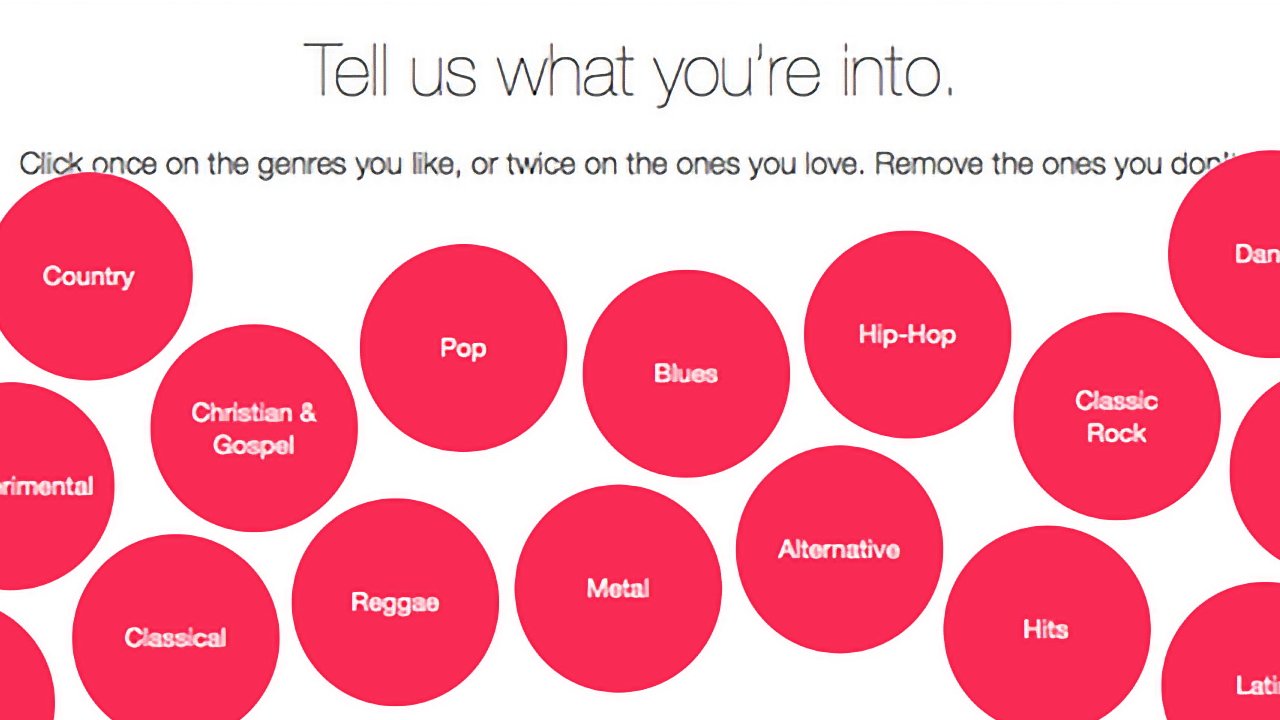
It's fine to be nostalgic for red blobs.
If you joined Apple Music when it first launched and have stayed with it since, you have probably paid out at least $1,198.80. The price has gone up over the years, plus there are more expensive tiers with a family plan, cheaper ones with the student offering, and Apple Music is also part of the Apple One bundle, but you've been paying something for up to a decade.
What won't have happened, though, is that you've ever had the service for free -- at least not above limited trials. Unlike its rivals, specifically Spotify, Apple Music does not offer a free ad-supported version.
"As a company, we look at music as art, and we would never want to give away art for free," Apple Music executive Oliver Schusser said at a music industry event in June 2025, as spotted by the Hollywood Reporter. "It makes no sense to me. We don't have a free service, we will not have one, we have no plans for one."
Curiously, Apple is one of only a couple of music streaming companies that could theoretically afford to give away music for free. Spotify, its greatest rival, the stand-out near-monopoly in streaming music -- although don't try telling the EU that -- gives away music and can't catch a break on getting anyone to pay for it.
Apple also charges less than Spotify for its individual tier -- although the same as Amazon Music -- and offers higher-quality lossless audio as standard. And while Spotify can argue it pays artists more because it streams more, Apple Music rewards musicians more per stream.
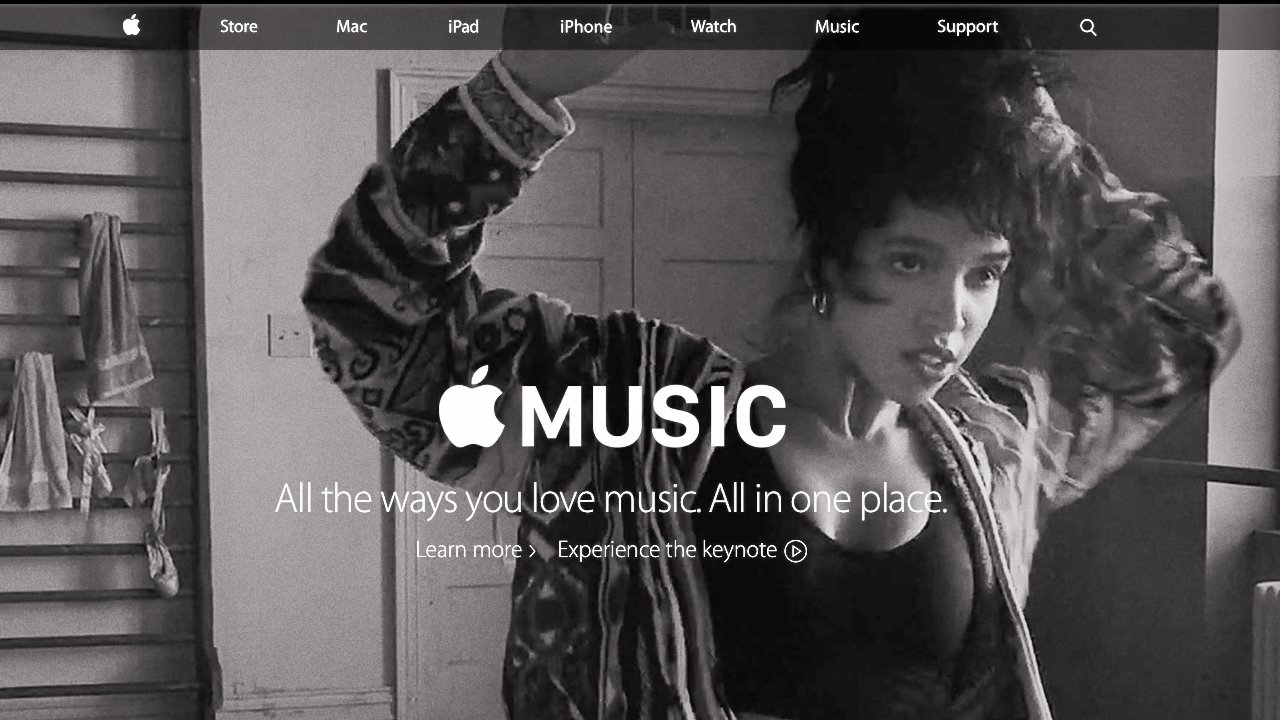
How Apple first promoted Apple Music online in 2015 -- image credit: Apple
It's just not a business that you would imagine was even conceived of before the 2010s at the earliest -- and you'd be wrong. Even Apple's music ventures go back further, and every one of them led to how Apple Music works.
The origins of streaming
It was 1881 -- seriously, 1881. The then-new Theatrophone service let subscribers phone in to hear opera. It was initially in France, although no records survive regarding whether the European Union told the company to open up its technology to everyone.
Not a great deal happened in music streaming for about 106 years, and then MP3.com came on the scene. Even then it was only providing uploaded or indie tracks -- it wasn't what you'd call mainstreaming.
Then in 2001, Napster came on the scene. Or rather, the Napster-operated Rhapsody service. And in 2008, Spotify was launched -- although it didn't reach the US until 2011.
Throughout all this time, Apple was changing the world with iTunes and literally changing how the music industry worked. Driving it to sales of individual tracks instead of albums, iTunes surely helped ease the path for streamers.
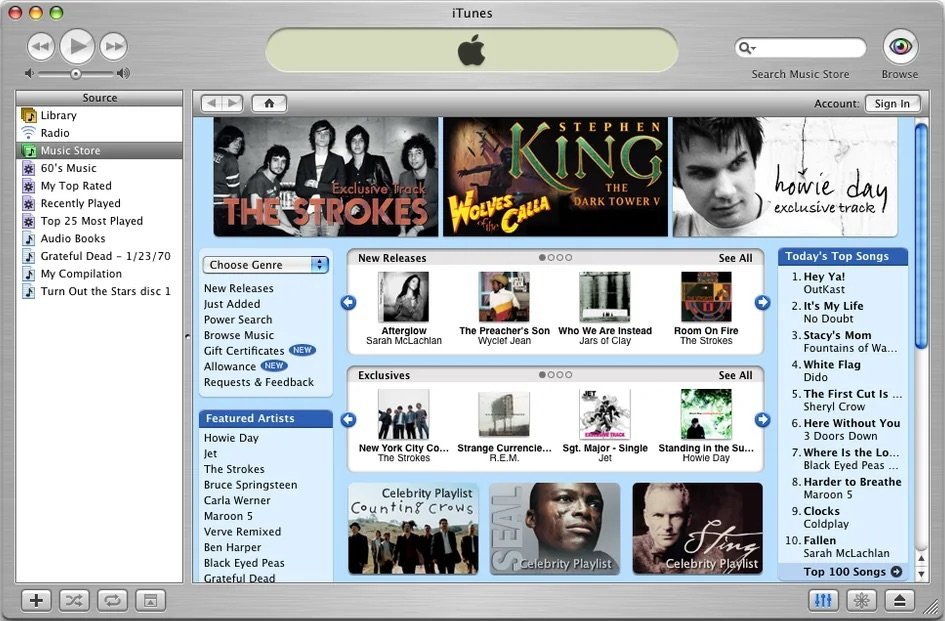
It was great, it was revolutionary -- but it wasn't streaming
But by 2014, Apple was ready -- and had decided it needed to be ready -- to go into streaming music itself. It was not a casual thought, either, as Apple paid out the greatest single fee it ever has to acquire a streaming service to kickstart its own.
In 2014, Apple bought Beats, spending around $3 billion to do so. Later it was disclosed that Beats owner Dr Dre having leaked the news early meant Apple then screwed him out of $200 million, bringing the price fractionally below those billions.
One more thing
At WWDC in June 2015, Tim Cook announced Apple Music, and did so as a "one more thing" after iOS 9 and Mac OS X El Capitan. He then introduced Jimmy Iovine, who had joined Apple as part of the Beats acquisition -- and had a lot to say about why Apple Music was needed.
"So now, 2015, music industry is a fragmented mess," he said. "If you want to stream music, you can go over here. If you want to stream some video, you can check some of these places out... If you want to follow some artists, there's more confusion for that."
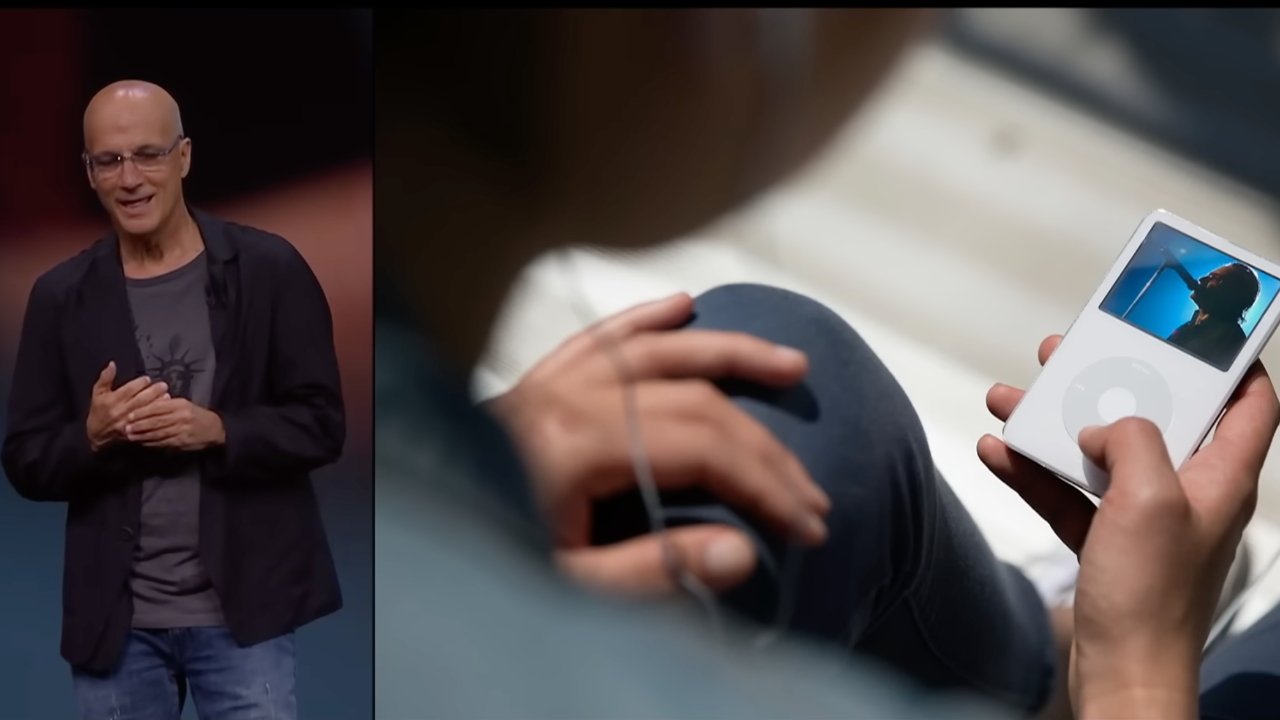
Jimmy Iovine talking about how Apple has always been involved in music -- image credit: Apple
"So I reached out to Tim Cook and Eddy Cue, and I said, 'Guys, can we build a bigger and better ecosystem with the elegance and simplicity that only Apple can do?'" he continued. "One complete thought around music?"
"And from that, I'm standing here today so proud of everyone that's worked so hard," he said. "And I'm going to introduce you to Apple Music."
The start of Apple Music
Right from the start, Apple Music aimed to differentiate itself in terms of quality. The music library couldn't be dramatically larger or better than any other service -- nobody had The Beatles then -- but Apple could do more with it.
Specifically, it could include human-curated playlists, such as the Essentials lists which remain to this day. Much more than a greatest hits collection, the Essentials playlists give a fan's view of an artist or band -- and a fan who keeps updating the list.
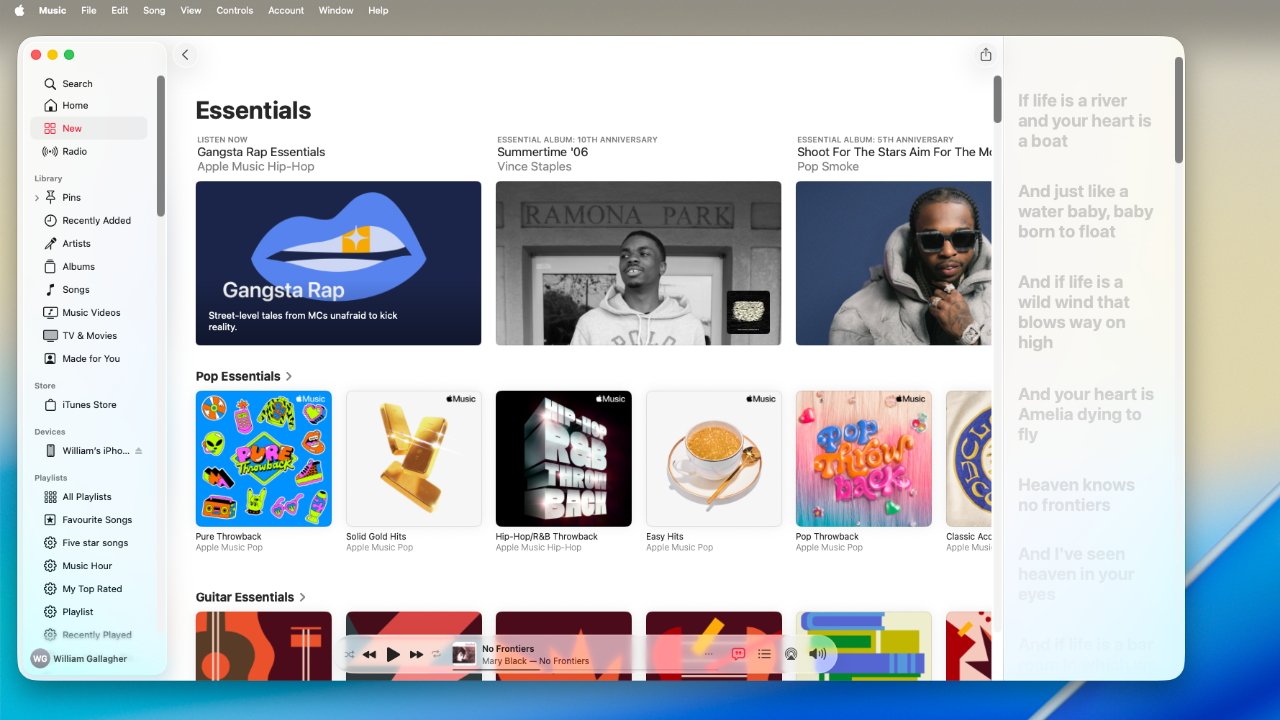
Human-curated playlists like the artist and genre Essentials series are a key benefit of Apple Music
Apple Music also launched with Beats 1, a 24-hour radio station, which by this tenth anniversary has broadcast non-stop for 87,672 hours. Or at least, the station has, even if its name was changed to Apple Music 1 in 2020 -- when Apple also launched the further stations Apple Music Hits and Apple Music Country.
Expanding Apple Music
You can well argue that the Apple Music of 2025 is the same as it was in 2015. The service got so much right at launch that there has been no fundamental alteration in it since.
Except that Apple Music did aim to also be a social media platform, specifically one that linked fans to artists. Apple Music Connect was the service's only failure, and it was abandoned in 2019.
Really it was abandoned right from the start, but Apple did vaguely plug away at it for the first four years of Apple Music.
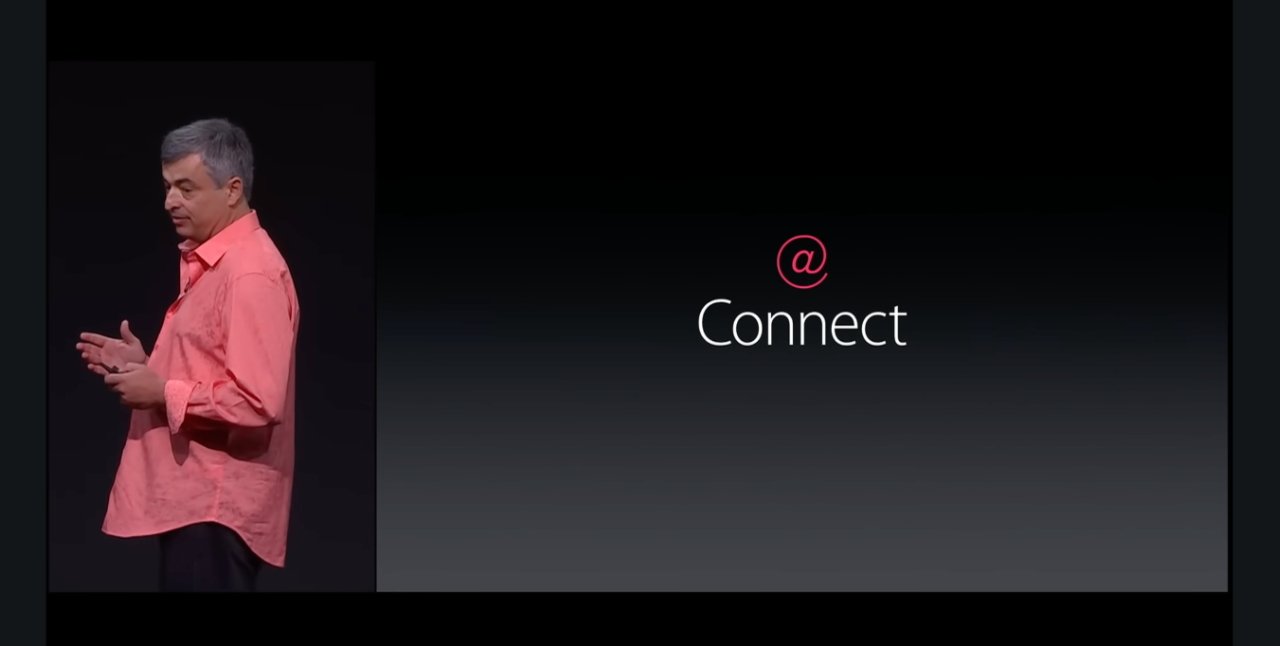
Eddy Cue tries to sell us Connect, the music social media platform that didn't take off -- image credit: Apple
Two years later, Apple turned its attention to growing the audience for Apple Music by acquiring Primephonic, the classical music streaming service. In a rare move, Apple actually announced at the time that this was in order to create a new Apple Music Classical service.
Apple Music already had classical tracks, but they are much harder to catalog than your typical pop song. There are multiple versions of just about everything, for a start, and even the same conductor can have done two editions with the same orchestra over the years.
So Apple Music Classical promised to have searching that was much better attuned to what classical fans needed. It also promised to launch quite soon -- and then didn't appear until 2021.
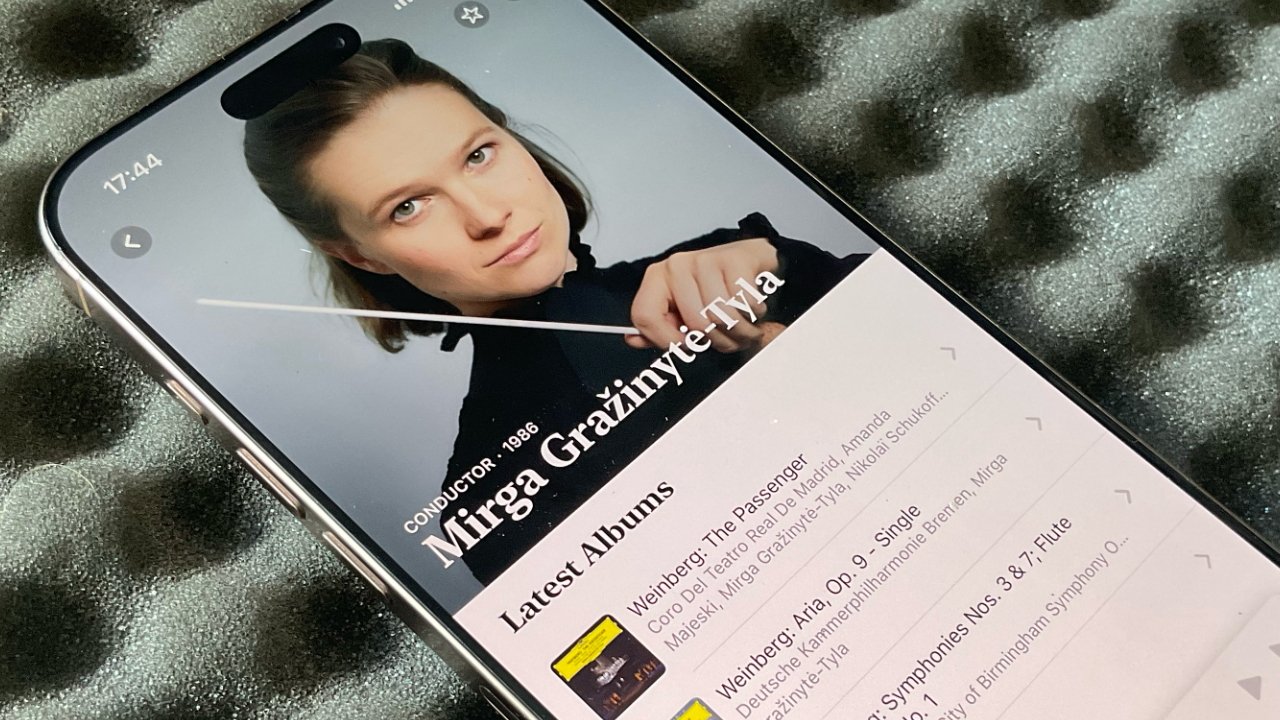
Apple Music Classical is still a little clunky, and still not on the Mac, but it's here.
Even then, it only launched on the iPhone and that Apple Music Classical iOS app until 2021">was clunky. Anyone could download the app, but it only worked with a regular Apple Music subscription -- then features like creating playlists required you to skip between the two music apps.
It has subsequently rolled out further, including to the web. As yet, it still isn't on the Mac, though.
Introducing Spatial Audio
Spatial Audio doesn't now appear to have paid off brilliantly, as it's possible that most Apple Music subscribers aren't even aware of it. But in 2023, it was a big deal for Apple -- and it does make a difference to the music.
It also made a difference to artists. In 2024, it was revealed that Apple was incentivizing musicians and producers to rework their music for Spatial Audio, by paying them extra per stream.
The effect on some albums is not noticeable, on others it's more gimmicky, but on some it feels like it expands the audio around you.
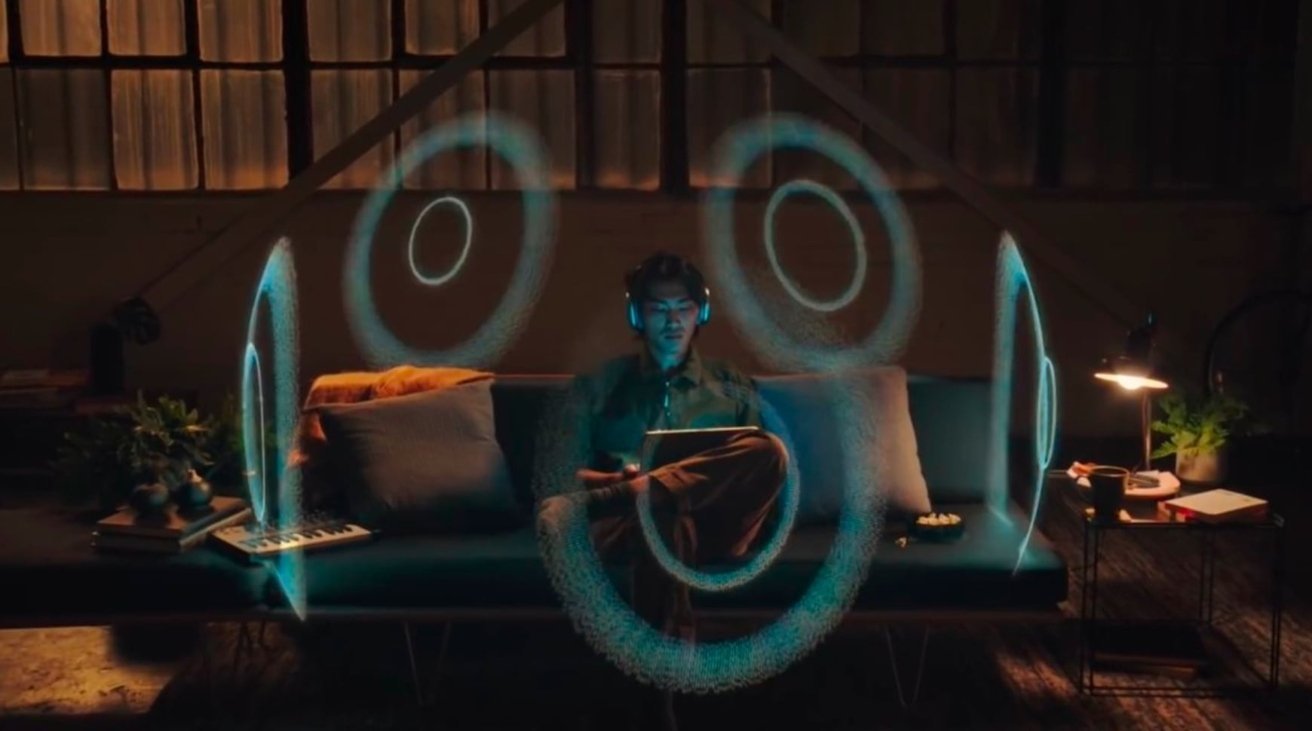
How Apple illustrated Spatial Audio when it first came to Apple Music -- image credit: Apple
And it was also a case of Apple trying to press music technology forward -- without automatically raising the price. Not even when it added the whole extra Apple Music Classical side to its offering.
There have been price rises -- Apple Music was originally $9.99 per month for the individual plan and in 2022 it rose to $10.99 per month.
But then, someone has to pay Apple for all the money it's given to the European Union in fines.
The EU arguably leads the world in regulating Big Tech firms and so many other countries and territories are trying to emulate it. But one thing it falls down on is believing Spotify when it claims that Apple has a monopoly in streaming music and is abusing it.
That perspective is why the EU decided to fine Apple $2 billion in 2024, and why Apple made a then-unusual public statement disagreeing with the European Commission.
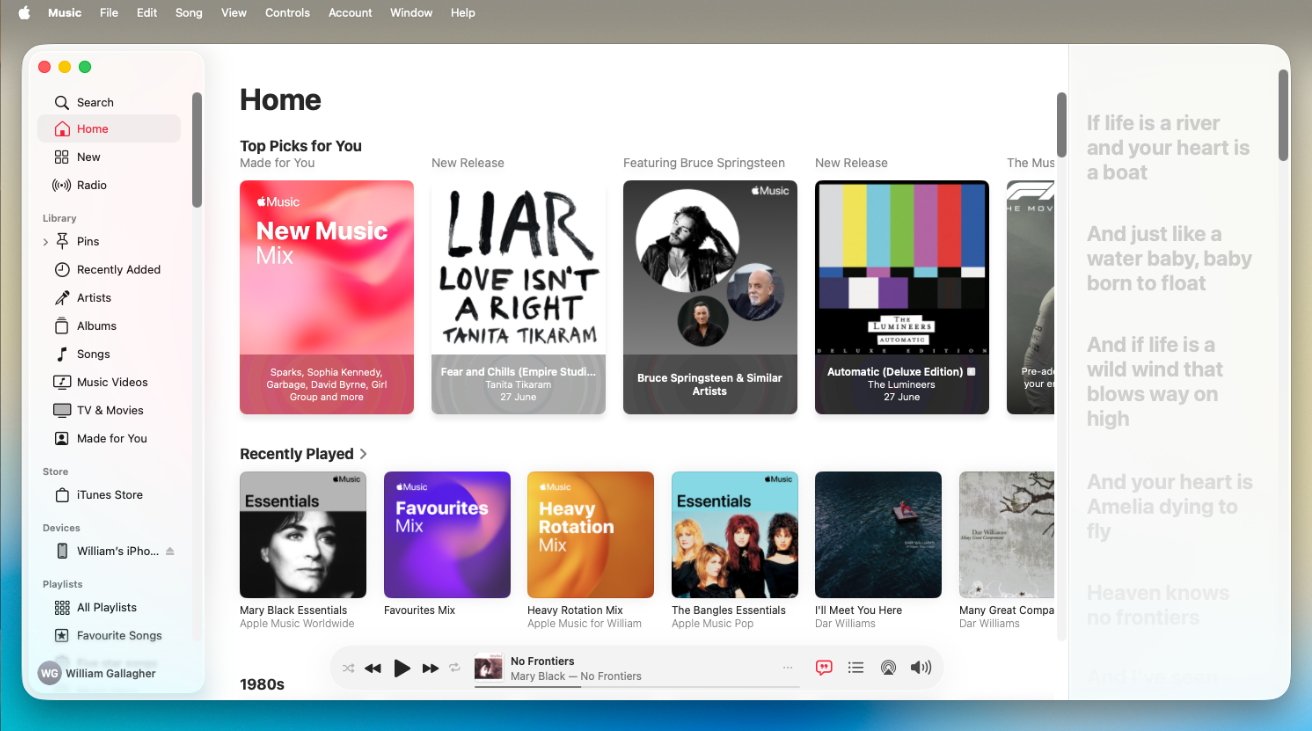
Apple Music today -- playlists, Essentials, recommendations and the weekly lists such as Favorites and Heavy Rotation
"The primary advocate for this decision -- and the biggest beneficiary -- is Spotify, a company based in Stockholm, Sweden," said an Apple spokesperson at the time . "Today, Spotify has a 56 percent share of Europe's music streaming market -- more than double their closest competitor's -- and pays Apple nothing for the services that have helped make them one of the most recognizable brands in the world."
The future of Apple Music
Apple immediately appealed that fine and like every other legal case, it is certain to roll on for years. If there's one other certainty about the future, it is that Apple Music will continue.
But if there are two other certainties, the other is surely that Apple Intelligence will come to Apple Music. Most recently in June 2025, it was reported that AI would be used to generate Apple Music playlists.
However, alongside the human-curated ones that make the service distinctive, there have always been playlists made by algorithms. Every Tuesday for ten years now, for instance, there's been a new Favorites playlist for every user.
So it's not clear what more can come, but at least Apple does not seem to be standing still with Apple Music.
Read on AppleInsider


Comments
It's also worth pointing out that MySpace let you stream a few songs from musicians' profile pages. This was great for new artist discovery before the streaming music services like Pandora and Spotify existed. It was one of the first social networks and eventually went out of fashion because they didn't monetize it enough to drive growth.
Apple was able to push spatial audio as a category because they made their own audio devices. Once again, Alan Kay's "people who are serious about software make their own hardware" mantra comes into place. By controlling the whole stack iPhone-iTunes/Apple Music-AirPods Apple was able to take spatial audio beyond the gimmicky beginnings to something else.
Once again this shows that Apple really does consider itself a software company at heart. A company whose software and services run best on their proprietary hardware.
Edit to add a rabbit-hole: This is why perennial suggestions like "Apple should buy Disney" or "Apple should buy Masimo" don't make sense. Pixar or Disney animation could boost AppleTV+, sure, but the rest of Disney's business like resorts, theme parks and cruise ships would draw Apple away from what it does, not reinforce sales of iPhones. Likewise with Masimo. They could make the conflict over Masimo's pulse oximeter go away, but Apple has no desire to own a standalone medical devices company, and buying it just to spin it off or shut it down would be a massive waste of money and resources just to solve a patent suit.
Apple Music
I have not taken the bite of buying songs or subscribing to Apple Music. The Music App is just a player for me, and it could be better. I have put some of my CD music collection in my Mac & iPhone. I have 7,133 songs in my iPhone. Some of these songs are over an hour long as I like to be able to hear an album in it's entirety without the Music App screwing it up. The Music app is designed for single songs and not albums. Music in my phone takes up 45.13 GB on and 75.36 GB on my Mac. My music is bought and paid for.
Apple is Stealing my Music
Recently, I learned from Apple Support that in order to listen to some of my bought and paid for songs that I have transferred from CD’s, I have to have an Apple Music Account on my iPhone. I do not. Apple Music takes some of the songs from the CD and displays a dialog box that says “This Song Is Not Available in Your Region”. When I look on an iPhone App “iAmzing” the app shows a cloud icon by the song that won’t play. Apple has stolen my song if I can’t play it on my phone. When you buy a song or album, you are given the right to play that song not to own it. Apple has stolen that right to play the song by referencing the Apple Music song.
Apple Support does not advise well
To play the song on the Music App on my iPhone, it want’s me to download it from the Apple Music Cloud. In order to do this I have to have an Apple Music Account. Apple told me that it was the music industry that changed the way they do this and they can not help me. This total false and I could not convince them otherwise. I tied playing Stealy Dan’s song “Aja”, it was referencing Apple Music version and gave me the error message “This Song Is Not Available in Your Region”. Like Stealy Dan is not available in my region in the USA? Their solution was to subscribe to Apple Music.
https://www.guidingtech.com/fix-apple-music-this-song-is-not-available-your-region-error-iphone-ipad/
Check Storage
This made me do some investigating into why this was happening. I did discover that my iPhone was very full storage and that when I had tried to sync my extensive Playlists from my Mac a lot of songs were in the Apple Music cloud. Not once did the Apple technician suggest to check my iPhone storage. So I deleted the offending files and cleared out my music. Now I had lots of GB’s to reload my music from my playlists. Surprise, Surprise, the iPhone still had those offending Apple Music files again.
Fixed?
I have found if I load the music by Albums in stead of Playlists, Apple Music does not substitute my music for theirs and I get all my songs. I have to manually create the playlists on the iPhone. I have never had to do this before. I sure miss iTunes!